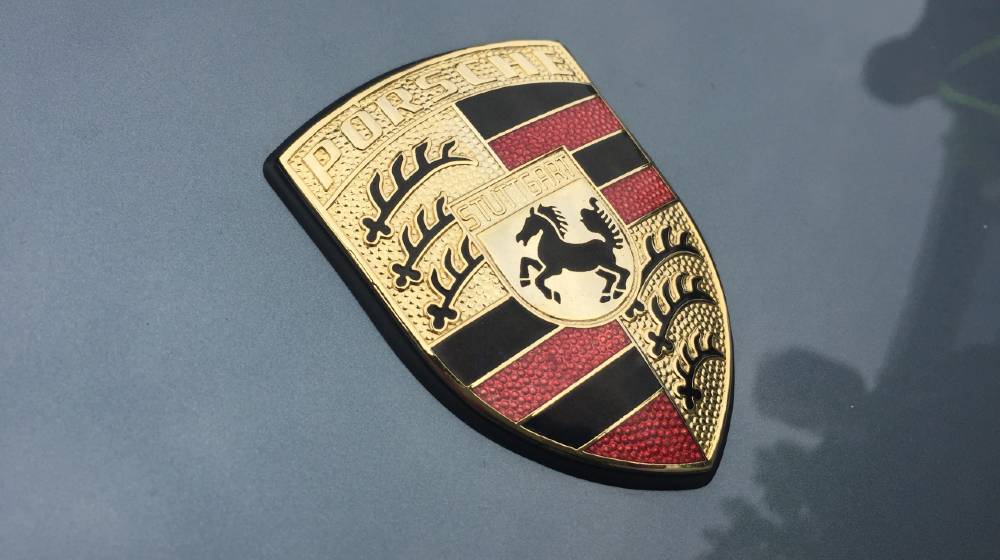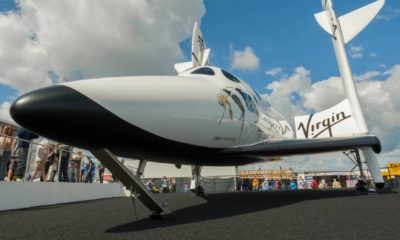Space Race
Porsche SE Is Latest Company To Join The Space Race

Porsche SE, the holding company controlling auto giant Volkswagen Group, is now the latest investor to join the space race. The company, a joint holding by the Porsche and Piëch families, is investing in Isar Aerospace. It's a German space startup that plans to enter the business of launching satellites.
RELATED: Space Race Heats Up As Virgin Galactic To Launch July 11
Isar To Compete In Launching Satellites
Isar aims to compete in space rocket production and satellite launch services. American aerospace companies like SpaceX and Blue Origins are currently dominating the industry. Tesla CEO Elon Musk leads the former while the latter’s chief financier is Amazon founder Jeff Bezos. Meanwhile, billionaire Richard Branson is a founder of Virgin Galactic. Both Branson and Bezos reached outer space via space flights earlier this month.
At present, Blue Origin and SpaceX are getting funding from their billionaire leaders. They are also looking into instituting manned space missions. Meanwhile, Isar wants a part of the less flashy market of launching satellites into orbit. Isar plans to launch its first test flight sometime next year.
Porsche SE Invests In Isar
Porsche SE will invest around $75 million in the venture. This is part of a total of $165 million in funding for Isar. HV Capital and Swiss bank Lombard Odier also gave money to round out the investment.
The automaker said it will receive a percentage stake in the single digits. “The funding will allow Isar Aerospace to further invest in its launch, testing, and manufacturing infrastructure for its largely automated rocket production and commercial operations,” Isar Aerospace said in a statement.
The investors are keen on getting their share of the action in small satellite launches. In fact. Isar expects commercial demand for satellite services to grow in the coming years. Many tech companies rely on satellite technology to run their cloud-based applications.
SpaceX and Virgin Orbit Sending Satellites Into Space
Last month, SpaceX sent 88 satellites into orbit in a single rocket launch on behalf of its many customers. That same day, Virgin Orbit, a spinoff of Branson's Virgin Galactic in 2017, also dispatched satellites into space owned by the US Defense Department, the Royal Netherlands Air Force, and a Polish startup called SatRevolution.
Isar Aerospace hopes to get its share of the action. “Space will become a key technological platform for many industries worldwide — from the automotive to the telecoms sector — bringing advances and new capabilities of [Internet of Things], data encryption and storage, as well as smart farming applications and surveillance for tackling climate change,” the aerospace company said. It added that the global space launch services market is expected to increase to over $35.4 billion by 2027.
Porsche SE Moving Beyond Automobiles
While their investment in Isar seems relatively small, Porsche SE is notably moving forward beyond the automobile industry. The Volkswagen Group, which owns Porsche, Audi, and Skoda, is now poised to join the billionaire space race.
“We are convinced that cost-efficient and flexible access to space will be an enabler of innovation in many industry sectors,” Lutz Meschke, Porsche SE executive in charge of investment management, said in a statement. “With Isar Aerospace, we are investing in a company that is well-positioned to establish itself as a leading European manufacturer of launch vehicles,” he added.
Investment in Isar Aerospace now totals $180 million since 2018. Other investors include Airbus's venture capital arm as well as former SpaceX executive Bülent Altan. Isar claims that it’s the fastest-growing private launch service company in the European Union.
Watch the Bloomberg New Economy video featuring the German rocket startup disrupting the space launch industry:
Do you think the space industry will grow into a lucrative business within the next few years? Is it a good idea to invest in these companies now while development is still ongoing?
Let us know what you think. Share your thoughts below.





